
Counting Down to HDIVC24!
Day(s)
:
Hour(s)
:
Minute(s)
:
Second(s)
Schedule at a Glance
Wednesday, August 7
Welcome with President Patt King, CHDS, CHDP
OPENING SESSION: Finding Calm in the Chaos
Kim Buchanan, BSW, AHDI-F, CHDS-R, and Mackenzie Buchanan, MSW Student
CEC: 1 Clinical Medicine
Americans are stressed out. Chronic health conditions, mental illness, substance abuse disorders, and overdose deaths are all on the rise. People don’t know how to cope or where to turn for help.
In March 2016, the lives of Kim Buchanan and her daughter, Mackenzie, took a dramatic nosedive into chaos because of the opioid epidemic. In this session, they will share their personal stories of devastation and recovery, and the scientifically proven coping mechanisms they use today to remain calm amidst the chaos that continues around them.
—————————————————————————————————————————————————————————————-
ABOUT THE SPEAKERS
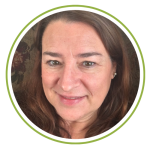 Kim Buchanan earned a bachelor’s degree in social work from the University of Washington in Seattle prior to taking a detour into the world of healthcare documentation and education. She participates in a 12-step program for loved ones of addicts and has recently published a book of journal prompts that complement 12-step work called The Serenity Journal: 365 Daily Journal Prompts to Help You on Your Path to Serenity. Kim credits her commitment to a 12-step fellowship, a focus on her mental health (including an antidepressant prescription), her lifelong journaling habit, and a daily practice of gratitude for keeping her sane in this crazy world.
Kim Buchanan earned a bachelor’s degree in social work from the University of Washington in Seattle prior to taking a detour into the world of healthcare documentation and education. She participates in a 12-step program for loved ones of addicts and has recently published a book of journal prompts that complement 12-step work called The Serenity Journal: 365 Daily Journal Prompts to Help You on Your Path to Serenity. Kim credits her commitment to a 12-step fellowship, a focus on her mental health (including an antidepressant prescription), her lifelong journaling habit, and a daily practice of gratitude for keeping her sane in this crazy world.
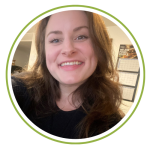 Mackenzie Buchanan is a licensed drug and alcohol counselor in Desert Hot Springs, California, and is completing her master’s degree in social work. She works for a drug treatment facility in Riverside County and is working with underserved high school students as part of her MSW internship. She is a Reiki practitioner and a recovering drug addict with 7-years clean and sober. Mackenzie credits her recovery community, her daily gratitude practice, prioritizing her mental health, an awesome therapist, and sustaining a spiritual connection for successfully maintaining sobriety and juggling her many priorities without losing her mind.
Mackenzie Buchanan is a licensed drug and alcohol counselor in Desert Hot Springs, California, and is completing her master’s degree in social work. She works for a drug treatment facility in Riverside County and is working with underserved high school students as part of her MSW internship. She is a Reiki practitioner and a recovering drug addict with 7-years clean and sober. Mackenzie credits her recovery community, her daily gratitude practice, prioritizing her mental health, an awesome therapist, and sustaining a spiritual connection for successfully maintaining sobriety and juggling her many priorities without losing her mind.
Session 2 - Building and Standardizing the Approach to Lifestyle Medicine in a Large Integrated Health System
Kara Tibbe, MBA, NBC-HWC
CEC: 1 Complementary Medicine
Lifestyle medicine is a specialty medicine that uses therapeutic lifestyle interventions as a primary modality to treat, manage, and reverse chronic conditions. The Lifestyle Medicine Practice at Corewell Health was the first of its kind to open in the country, and standardization with structure, documentation, and infrastructure was imperative for success of the practice.
In this session we will discuss what lifestyle medicine is and the aspects of health and lifestyle that are addressed in the program, as well as the tactics used to build out the operations of this specialty practice.
—————————————————————————————————————————————————————————————-
ABOUT THE SPEAKER
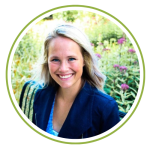 Kara Tibbe, MBA, NBC-HWC manages the Lifestyle Medicine Specialty Practice and Health Coaching team at Corewell Health in Grand Rapids, Michigan. Kara has helped to develop, standardize, and implement all programs and pathways within the Lifestyle Medicine department, working closely with internal team members but also other key System leaders to integrate Lifestyle Medicine into specialty and primary care practices within Corewell Health. Kara is passionate about the pillars of Lifestyle Medicine and lives out the purpose and mission of Lifestyle principles with her family every single day.
Kara Tibbe, MBA, NBC-HWC manages the Lifestyle Medicine Specialty Practice and Health Coaching team at Corewell Health in Grand Rapids, Michigan. Kara has helped to develop, standardize, and implement all programs and pathways within the Lifestyle Medicine department, working closely with internal team members but also other key System leaders to integrate Lifestyle Medicine into specialty and primary care practices within Corewell Health. Kara is passionate about the pillars of Lifestyle Medicine and lives out the purpose and mission of Lifestyle principles with her family every single day.
Session 3 - The War on Cancer: How You Are Helping
Vicki Hawhee, MEd, ODS-C
CEC: 1 Medicolegal
Cancer registries have been around for many years, but many people do not know what they are or what they are used for. Attend this session to learn the multiple purposes cancer data is used for, what information must be reported to the state central cancer registry and the National Cancer Database, and how the data is reported. The electronic medical record is the source for all the submitted data, and accurate information in all documents is crucial for cancer research, clinical trials, and standard of treatment.
Learning objectives
1. Identify which types of cancer must be reported.
2. List the information that is reported for each cancer diagnosis.
3. Identify the standard setters involved in the collection of cancer information.
4. List the many ways cancer data is used.
————————————————————————————————————————————————————————————–
ABOUT THE SPEAKER
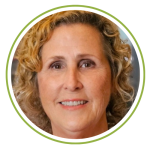 Vicki obtained her B.S. in Medical Technology from Florida State University and a master’s in Adult Education from the University of South Florida. She worked in the laboratory at University Hospital in Jacksonville as well as Clearwater Community Hospital. She also worked for Tampa College for 10 years as the Academic Dean. She was a medical transcriptionist for TSI for over 15 years in Clearwater, Florida, and has been working in the cancer registry for 13 years, currently at the Miami Cancer Institute, which is part of Baptist Health South Florida.
Vicki obtained her B.S. in Medical Technology from Florida State University and a master’s in Adult Education from the University of South Florida. She worked in the laboratory at University Hospital in Jacksonville as well as Clearwater Community Hospital. She also worked for Tampa College for 10 years as the Academic Dean. She was a medical transcriptionist for TSI for over 15 years in Clearwater, Florida, and has been working in the cancer registry for 13 years, currently at the Miami Cancer Institute, which is part of Baptist Health South Florida.
Session 4 - Digital Security Steps & Tools: Protecting Privacy & Safety Online
Hardy Brooklyn
CEC: 1 Technology & Tools
This session will be of benefit to everyone as Hardy will dive into what computer security is and the different options available, including passwords, wi-fi, cell phones, firewalls, computers, padlocks, and tokens, and what they can do given their specific situations.
Attendees will be able to assess and understand their specific needs, such as hiring the right experts, adapting their behaviors, and taking tangible steps to better protect themselves and their businesses.
Learning Objectives will include:
1. Having a better understanding of the current computer security environment.
2. Best Practices for using two-factor authorization and passwords.
3. Protecting one’s hosted/cloud content.
4. Differences between hardware, software, and human security.
5. Understanding and compensating for your individual security compromises.
—————————————————————————————————————————————————————————————-
ABOUT THE SPEAKER
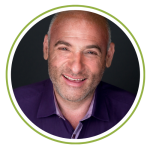 An active member of his Toastmasters chapter, Hardy Brooklyn is an avid presenter skilled at keeping the attention of diverse audiences. He has been a technologist since early childhood, and, upon graduating from New York City’s Queens College with a BA in Computer Science, he founded and led two thriving consulting firms. While his expertise – and consulting – has broadened continuously, Hardy’s stayed up to date on technology, including computer security.
An active member of his Toastmasters chapter, Hardy Brooklyn is an avid presenter skilled at keeping the attention of diverse audiences. He has been a technologist since early childhood, and, upon graduating from New York City’s Queens College with a BA in Computer Science, he founded and led two thriving consulting firms. While his expertise – and consulting – has broadened continuously, Hardy’s stayed up to date on technology, including computer security.
As a partner in the business technology firm of L&D Computer Consulting Corp. and business consulting firm of Box of Rain, Hardy has been instrumental in helping diverse clients with every facet of business development and management. To date, he’s contributed to the success of hundreds, if not thousands, of organizations, including startups, small businesses, and global corporations.
A recognized expert on the business use of technology, Hardy has been interviewed and quoted by Inc. Magazine, Newsday, the BBC News, and several industry-specific publications and has served as an expert witness in New York State courts. He has also led courses, seminars, and team-building exercises for Queens College, the New School, the American Management Association, the Independent Computer Consultants Association, and New York University. Devoted to serving his community and living a balanced life, Hardy volunteers with New York City Community Emergency Response Team (NYC CERT); uses his Eagle Scout training while camping and hiking, and goes to hear live music as much as possible.
LIVE ZOOM EVENT
Info will be posted soon!
Thursday, August 8
Day 2 Welcome and Announcements
Session 5 - School Psychology Demystified for the Healthcare Professional
Maria Dobbins, PhD, LSSP
CEC: 1 Clinical Medicine
Healthcare and education appear to exist in different realms, with different terminology and diagnostic criteria. It would be helpful for there to be more dialogue between the professions, as both are fundamentally geared toward helping children. This session will provide the audience with a basic understanding of the practice of psychology within public schools.
Learning Objectives:
1. Learn what a school psychologist does.
2. Understand the types of medical and psychological issues that can lead to the need for special education.
3. Learn the components of a psychoeducational evaluation and the types of tests used to evaluate students.
4. Be able to define IEP and Section 504 plans and understand the difference between educational eligibilities and medical diagnoses.
5. Understand different types of home/school interventions that can help students succeed.
—————————————————————————————————————————————————————————————-
ABOUT THE SPEAKER
 Maria Dobbins obtained her MS, CAGS, and PhD from Northeastern University and has been employed as a school psychologist, having worked in public schools in Texas and California, for 26 years. While proficient in identifying learning problems, Dr. Dobbins has focused her career on evaluating students with autism, mood disorders, and behavior issues.
Maria Dobbins obtained her MS, CAGS, and PhD from Northeastern University and has been employed as a school psychologist, having worked in public schools in Texas and California, for 26 years. While proficient in identifying learning problems, Dr. Dobbins has focused her career on evaluating students with autism, mood disorders, and behavior issues.
Session 6 - Advances in the Management of Child and Adolescent HIV
Rosemary Olivero, MD, FAAP, FPIDS
CEC: 1 Clinical Medicine
This session will provide a timely update on global, national, and state epidemiology of HIV, an overview of HIV pathophysiology and treatment modalities, an update on preventative strategies, and the most cutting-edge advances in chronic HIV management.
Learning Objectives
1. Understand the basics of the HIV virus and how it replicates.
2. Identify how HIV is transmitted, and the risk factors for HIV transmission.
3. Gain understanding of the various treatments for chronic HIV infection as well as HIV prevention.
4. Identify the advances in HIV prevention and treatment.
—————————————————————————————————————————————————————————————
ABOUT THE SPEAKER
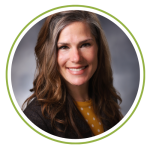 Dr. Olivero is a board-certified General Pediatrician and Pediatric Infectious Diseases physician. A native of New York, she completed her undergraduate degree at Vanderbilt University, her medical degree at Northwestern University, her Pediatrics residency at Children’s Memorial Hospital of Northwestern (now Lurie Children’s Hospital), and then her Pediatric Infectious Diseases fellowship at Boston Medical Center. She then came to Grand Rapids in 2012 to direct the growing HIV program. Since that time, Dr. Olivero has been promoted to Section Chief, Medical Director and Associate Professor at her academic affiliate, Michigan State College of Human Medicine. Dr. Olivero has served on several local, national, and international committees, including the American Academy of Pediatrics’ Committee on Pediatric and Adolescent HIV. Dr. Olivero has published and presented widely and consistently in the field of infectious diseases and pediatric HIV.
Dr. Olivero is a board-certified General Pediatrician and Pediatric Infectious Diseases physician. A native of New York, she completed her undergraduate degree at Vanderbilt University, her medical degree at Northwestern University, her Pediatrics residency at Children’s Memorial Hospital of Northwestern (now Lurie Children’s Hospital), and then her Pediatric Infectious Diseases fellowship at Boston Medical Center. She then came to Grand Rapids in 2012 to direct the growing HIV program. Since that time, Dr. Olivero has been promoted to Section Chief, Medical Director and Associate Professor at her academic affiliate, Michigan State College of Human Medicine. Dr. Olivero has served on several local, national, and international committees, including the American Academy of Pediatrics’ Committee on Pediatric and Adolescent HIV. Dr. Olivero has published and presented widely and consistently in the field of infectious diseases and pediatric HIV.
Session 7 - Psychedelic-Assisted Therapies and Their Long-Term Results
Jessica Khurana
CEC: 1 Clinical Medicine
In this session we will review what psychedelics are and learn how they are used to treat rare pain conditions as well as mental health disorders. We’ll look at several case studies at Eleusinia to see how they have been used.
Attendees will learn:
1. What classic psychedelics are.
2. The therapeutic mechanisms of N-Dimethyltryptamine (DMT) and psilocybin.
3. How the therapeutic effects of psychedelics apply to the bio-psycho-social aspects of both chronic pain and mental health conditions.
4. Individual stories of how psilocybin and DMT have been used at the retreat.
N, N-Dimethyltryptamine is a substituted tryptamine that occurs in many plants and animals, including humans, and which is both a derivative and a structural analog of tryptamine. DMT is used as a psychedelic drug and prepared by various cultures for ritual purposes as an entheogen. (Source: Wikipedia)
—————————————————————————————————————————————————————————————-
ABOUT THE SPEAKER
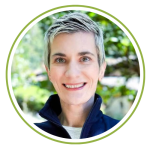 Jessica Khurana is a patient with hemicrania continua, a constant debilitating headache in the TAC family. After experiencing significant relief with psychedelics, she started Eleusinia Retreat, a retreat dedicated to teaching visitors to leverage psychedelics for both physical and mental benefits. Jessica is first and foremost a patient advocate.
Jessica Khurana is a patient with hemicrania continua, a constant debilitating headache in the TAC family. After experiencing significant relief with psychedelics, she started Eleusinia Retreat, a retreat dedicated to teaching visitors to leverage psychedelics for both physical and mental benefits. Jessica is first and foremost a patient advocate.
Session 8 - Child Life Specialist as the Translators of the Healthcare Experience
Jeannine Brown, MS Ed., CCLS II, and Katrena Froh MA, CCLS, CEIM
CEC: 0.5 PD and 0.5 CM
Child life specialists’ practice is driven by five core values including healthcare consumership, institutional savings, psychosocial outcomes, patient, and family engagement and observed impacts on development (childlife.org). Child Life specialists are skilled at educating multidisciplinary staff how to speak to children in a non-threatening, developmentally appropriate, and emotionally safe way. Child life specialists prioritize the coping and developmental needs of children and families, and in this role, they may serve as the translators and navigators of the often confusing and complicated world of medicine. Ensuring children and families fully understand their healthcare experience leads to better outcomes, shorter hospital stays, and higher patient satisfaction scores.
This presentation will provide attendees with the language and skills needed to ensure they are providing emotionally safe care for pediatric patients and their families.
Learning Objectives:
1. Recognize the scope of practice of child life specialists and the contributions they make to the healthcare experience for patients and their families.
2. Identify misconceptions and knowledge gaps regarding pediatric patients’ understanding of the healthcare environment, and learn strategies to better communicate with pediatric patients and their families.
3. Recognize how developmental stages impact the way children and teens understand their healthcare experiences.
4. Understand how to assess a child’s understanding of their medical treatment.
5. Implement recommended language to reduce anxiety and create a culture that promotes long-term effective coping for future healthcare experiences.
—————————————————————————————————————————————————————————————-
ABOUT THE SPEAKERS
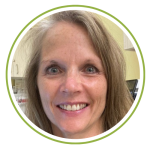 Jeannine Brown received her master’s degree in Early Childhood Education from Grand Valley State University and is a Certified Child Life Specialist at Helen Devos Children’s Hospital. Before finding a career in child life, Jeannine worked 25 years in the field of education as an early interventionist supporting young children, birth to 3 years old, and their families within the classroom and their homes. After experiencing a 3-year medical journey with her teenage daughter, Jeannine was inspired to support other families going through similar experiences. Jeannine completed her child life internship at Cincinnati Children’s Hospital, and in 2018, Jeannine joined the Child and Family Life team at Helen DeVos. Jeannine supports patients and families experiencing a variety of medical needs ranging from acute illnesses to trauma and loss. Jeannine has a passion for supporting the whole family in challenging situations as well as providing education for our child life student interns, clinical nursing students, and newly hired nursing staff.
Jeannine Brown received her master’s degree in Early Childhood Education from Grand Valley State University and is a Certified Child Life Specialist at Helen Devos Children’s Hospital. Before finding a career in child life, Jeannine worked 25 years in the field of education as an early interventionist supporting young children, birth to 3 years old, and their families within the classroom and their homes. After experiencing a 3-year medical journey with her teenage daughter, Jeannine was inspired to support other families going through similar experiences. Jeannine completed her child life internship at Cincinnati Children’s Hospital, and in 2018, Jeannine joined the Child and Family Life team at Helen DeVos. Jeannine supports patients and families experiencing a variety of medical needs ranging from acute illnesses to trauma and loss. Jeannine has a passion for supporting the whole family in challenging situations as well as providing education for our child life student interns, clinical nursing students, and newly hired nursing staff.
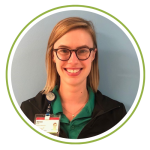 Katrena Froh has been a child life specialist for 10 years, primarily servicing the NICU and hematology-oncology population, with a recent focus on supporting our student interns. Katrena received her master’s degree in Family and Consumer Sciences from Western Michigan University and now is an adjunct faculty for WMU, Concordia University, and Ferris State University. Katrena is mother to five-year-old twin boys, who not only keep her busy but also whose own healthcare experience has inspired her commitment to emotional safety and focus on pain management. Katrena provides education to new nurses, residents, and multidisciplinary team members and has presented at multiple regional conferences and the Association of Child Life Professionals national conference.
Katrena Froh has been a child life specialist for 10 years, primarily servicing the NICU and hematology-oncology population, with a recent focus on supporting our student interns. Katrena received her master’s degree in Family and Consumer Sciences from Western Michigan University and now is an adjunct faculty for WMU, Concordia University, and Ferris State University. Katrena is mother to five-year-old twin boys, who not only keep her busy but also whose own healthcare experience has inspired her commitment to emotional safety and focus on pain management. Katrena provides education to new nurses, residents, and multidisciplinary team members and has presented at multiple regional conferences and the Association of Child Life Professionals national conference.
LIVE ZOOM EVENT
text
Friday, August 9
Day 3 Welcome and Announcements
Session 9 - The Power of Words: Navigating the Complex World of Cannabis
Alexandria Hill, DNP, GERO RN-BC, RAC-CT, QCP, and Victoria Crenshaw, PhD, MSG, LNHA
CEC: 0.5 Medicolegal and 0.5 Clinical Medicine
Cannabis, also known as hemp or marijuana, is a powerful plant that has been used for various purposes throughout history. It has medicinal and recreational properties, which have been recognized by many cultures worldwide. Cannabis contains compounds called cannabinoids that interact with our body’s endocannabinoid system to produce various effects (such as pain relief, mood enhancement, and relaxation) that promote balance and wellness.
Cannabis has been a controversial topic for many years, with varying opinions on its use. The words used to describe it have been diverse, ranging from negative terms like “devil’s lettuce” to positive ones like “medicine.” The language used to talk about cannabis has played a significant role in shaping public opinion and policy.
By understanding terminology related to cannabis, we can better navigate the complex world of cannabis. This presentation will cover the plant’s basics, the endocannabinoid system’s intricacies, and the current state of regulations. Additionally, we will discuss the latest scientific research on the therapeutic potential of cannabis and the challenges and opportunities presented by the legal landscape.
————————————————————————————————————————————————————————————-
ABOUT THE SPEAKERS
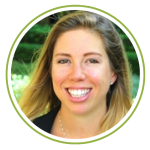 Dr. Alex Hill, a board-certified gerontology nurse, is the Chief Nursing Officer of Cannability Consulting. She blends her experience in aging services and expertise in cannabis, quality improvement, regulatory compliance, and gerontology to empower medical cannabis patients and healthcare providers to navigate through the weeds of hemp and medical cannabis. Alex disseminates cannabis education through individual consultations, in-person and virtual education, speaking engagements, publications, and podcasts. She is an Item Writer for the American Nurse Credentialing Center and is an active member of the American Cannabis Nurses Association, serving on their Credentialing and Research/Education Committees.
Dr. Alex Hill, a board-certified gerontology nurse, is the Chief Nursing Officer of Cannability Consulting. She blends her experience in aging services and expertise in cannabis, quality improvement, regulatory compliance, and gerontology to empower medical cannabis patients and healthcare providers to navigate through the weeds of hemp and medical cannabis. Alex disseminates cannabis education through individual consultations, in-person and virtual education, speaking engagements, publications, and podcasts. She is an Item Writer for the American Nurse Credentialing Center and is an active member of the American Cannabis Nurses Association, serving on their Credentialing and Research/Education Committees.
Alex is also Westminster Canterbury’s Director of Quality Improvement and a Healthcare Quality consultant for Chiles Healthcare Consulting. She is a Doctor of Nursing Practice, holds a Master of Nursing Administration and Leadership, and is board-certified in Gerontology. Alex has over a decade of experience in long-term care, from the bedside to corporate leadership roles in operations, staff development, informatics, quality improvement, risk management, and regulatory compliance.
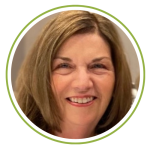 Tori is the Senior Vice President of Health and Innovation at Westminster Canterbury on Chesapeake Bay and the Chief Nursing Officer of Cannability Consulting. Tori is a geropsychologist with a master’s degree in Gerontology and a doctorate in Developmental Psychology and Aging. Her extensive healthcare and clinical operations background includes serving as the Vice President of a nationwide healthcare organization, providing oversight to 126 skilled and assisted living centers in nine states. She is also the past Vice President of Programs and Services for the Alzheimer’s Association, National Capital Division. Tori is active in the Mayor’s Commission on Aging in Virginia Beach.
Tori is the Senior Vice President of Health and Innovation at Westminster Canterbury on Chesapeake Bay and the Chief Nursing Officer of Cannability Consulting. Tori is a geropsychologist with a master’s degree in Gerontology and a doctorate in Developmental Psychology and Aging. Her extensive healthcare and clinical operations background includes serving as the Vice President of a nationwide healthcare organization, providing oversight to 126 skilled and assisted living centers in nine states. She is also the past Vice President of Programs and Services for the Alzheimer’s Association, National Capital Division. Tori is active in the Mayor’s Commission on Aging in Virginia Beach.
Tori develops innovative ways to drive programs and processes at Westminster-Canterbury and in the community. Her courage and innovation have been essential to the development of Cannability Consulting. She is an operational subject matter expert who has consistently led her teams to produce outstanding clinical outcomes. Her deployment of cutting-edge strategies and benchmarking tools significantly contributes to the designation and maintenance of Westminster Canterbury’s CMS Five-Star Rating.
Session 10 - Who Can Access Your Medical Records?
Georgia Green, MEd, MBA, RHIA, CCS, CCP, CHDS, AHDI-F
CEC: 1 Medicolegal
This presentation is targeted at healthcare documentation specialists who are themselves healthcare consumers and want to know about their own medical records but who may also be interested in exploring alternative career paths in the health information management field.
At the end of this presentation, attendees will be able to:
1. Explain who can access their medical records and under what authority.
2. Describe the process for requesting a correction to their own medical record.
3. List the elements of an accounting of disclosures.
4. Cite federal laws that apply to the Release of Information process.
—————————————————————————————————————————————————————————————-
ABOUT THE SPEAKER
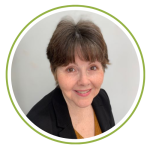 Georgia has managed the Release of Information department at a regional healthcare system for seven years, where we responded to approximately 155,000 record requests last year from patients, other healthcare providers, and third parties like insurance companies, attorneys, social service agencies, law enforcement, and the courts, among others. Disclosures of protected health information must be compliant with federal law and the laws of states in which we operate, as well as company compliance policies, which requires my expertise in these areas. Within my role, I work closely with company attorneys and compliance experts.
Georgia has managed the Release of Information department at a regional healthcare system for seven years, where we responded to approximately 155,000 record requests last year from patients, other healthcare providers, and third parties like insurance companies, attorneys, social service agencies, law enforcement, and the courts, among others. Disclosures of protected health information must be compliant with federal law and the laws of states in which we operate, as well as company compliance policies, which requires my expertise in these areas. Within my role, I work closely with company attorneys and compliance experts.
Session 11 - Documentation in the Preclinical Research Environment
Dale M. Cooper, DVM, MS, Dipl. ACLAM
CEC: 1 Medicolegal
This session will provide an overview of the regulatory oversight and documentation requirements for preclinical research. This should provide participants with an appreciation for the work involved in developing medical treatments, the level of control for data quality and animal welfare, and insights on how to find data associated with drug development.
Learning Objectives
- Biomedical research is a heavily regulated endeavor.
- Animals are used in preclinical research when scientifically justified, and their use is overseen by veterinarians and other qualified professionals.
- Data quality and integrity are regulated by the FDA and EPA, as well as OUS agencies.
- There are additional regulatory requirements for study designs, safety, drug diversion control, and protection of animal resources.
- Many records generated in drug development are proprietary, but some are available, including summary information for all approved medical treatments.
——————————————————————————————————————————————————————————-
ABOUT OUR SPEAKER
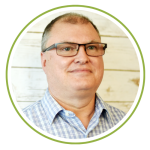 Dale has worked for 31 years as a veterinarian in preclinical drug development, at all stages of the pipeline, including academic and pharmaceutical drug discovery, lead optimization, IND enabling preclinical safety, and post-IND safety. He is familiar with general laboratory documentation practices, Good Laboratory Practice standards, controlled substances documentation, and requirements for USFW, CITES, OSHA, domestic and international shipping, veterinary medical records, and USDA, NIH, and AAALAC animal welfare compliance.
Dale has worked for 31 years as a veterinarian in preclinical drug development, at all stages of the pipeline, including academic and pharmaceutical drug discovery, lead optimization, IND enabling preclinical safety, and post-IND safety. He is familiar with general laboratory documentation practices, Good Laboratory Practice standards, controlled substances documentation, and requirements for USFW, CITES, OSHA, domestic and international shipping, veterinary medical records, and USDA, NIH, and AAALAC animal welfare compliance.
Session 12
Speeaker Name
CEC
LIVE ZOOM EVENT
*Schedule subject to change without notice. Items with a yellow background indicate live events via Zoom.
Continuing Education Credits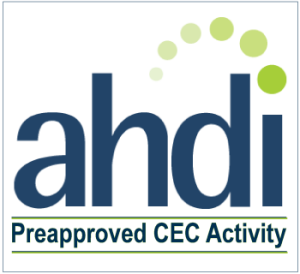
The program provides continuing education credits (CECs) for those who hold the following credentials: RHDS, CMT, CHDS, CHDP, CHDP-A, and CHDP-S.
Not credentialed? Learn more about AHDI credentials offered.
The following is a list of CEC categories and their abbreviations:
- Clinical Medicine (CM)
- Medicolegal Issues (ML)
- Professional Development (PD)
- Technology and Tools (TT)
- Complementary Medicine (CoM)